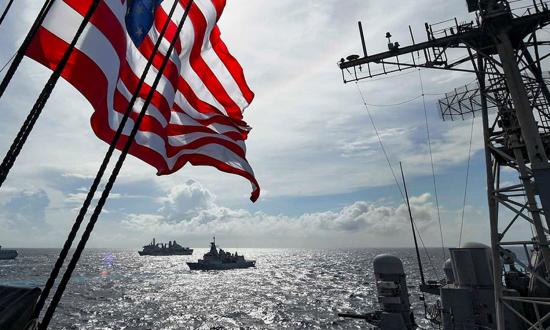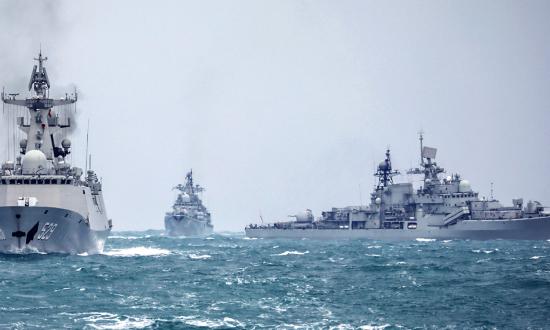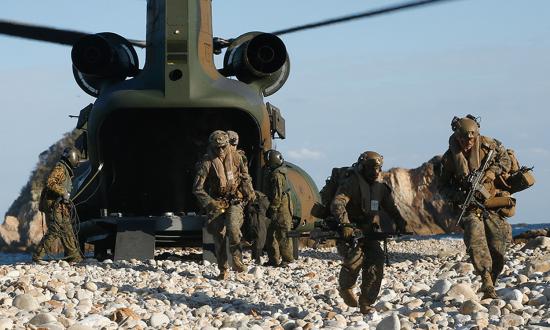As this issue went to press, the major headlines were all about the Houthi attacks on shipping in the Red Sea, the international coalition to protect the sea lines, and the coalition airstrikes against Houthi targets in Yemen. What is a Navy for? Look no further than the recent headlines. This month’s Need to Know column, by California State University professor and shipping expert Joe Greco, explains major global shipping routes and ship sizes for both container ships and crude oil carriers. Notably, 20 percent of global crude traffic passes through the Suez Canal and Red Sea.
In the ongoing American Sea Power Project, retired Navy Vice Admiral T. J. White, retired Rear Admiral Danelle Barrett, and Commander Jake Bebber predict “The Navy Is Not Ready for the Information War of 2026.” A key reason for their dour prediction is that “the Navy has not adequately adapted to how war in the maritime domain intersects with war in the cyber domain.” In “Naval Special Warfare Will Have To Fight Differently,” former Deputy Undersecretary of the Navy Seth Cropsey argues that the “revisionist coalition the United States and its allies face . . . has weak points . . . [and] SOF are the best tool to stress those weak points.” Merchant shipping expert and historian Salvatore Mercogliano’s “Logistics Wins (and Loses) Wars” provides several potential scenarios that highlight weaknesses in U.S. military sealift and afloat prepositioning systems that demand immediate attention. Army General Charles Flynn and Lieutenant Colonel Tim Devine’s “To Upgun Seapower in the Indo-Pacific, You Need an Army” shows the efforts the U.S. Army is making to answer the call to sink ships. It also shows the need for joint solutions and how the Army provides key support to other services throughout the Indo-Pacific theater.
The Defense Department’s Replicator Program and the ongoing war in Ukraine have many people focused on uncrewed systems. Coast Guard Lieutenant (junior grade) Brennan Suffern says, “USVs Do Not Comply With Collision Regulations” —most notably the requirement to have a human lookout. The United States should, Suffern writes, lead an international effort to promote a new framework for the safe and legal operation of unmanned surface vessels.
Finally, the winners of the 2023 CNO Naval History Essay Contest, Marine Corps Major Ryan Ratcliffe and Dr. Douglas Bryant, penned an exceptional essay. In “When Deterrence Fails, Warfighting Becomes Supreme,” they point out that history shows the difference between those who treated deterrence as a hope and those who treated it as a strategy (that might fail).
Our annual WEST Conference is 13–15 February—free to active-duty military members. If you’re in San Diego, don’t miss it. The keynote speakers and panel discussions will be superb. Stop by the Naval Institute booth and say hello!






